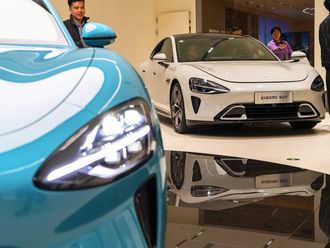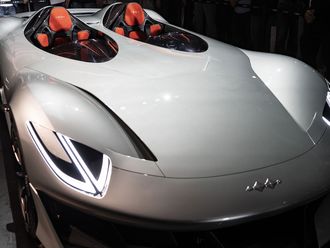Dubai: Nestlé, the world’s largest food company, expects sales in the Middle East to grow by up to 10 per cent in 2015 from $2.4 billion a year ago, despite weaker performance in Yemen, Syria and Iraq, according to its top executive.
The Swiss food giant, maker of Kit Kat and Gerber baby food, aims to invest in manufacturing and developing and introducing new products, Yves Manghardt, chairman and chief executive of Nestle Middle East, told Gulf News in an interview on Wednesday.
It is investing Dh500 million to build a new manufacturing facility in Dubai World Central, where it will produce culinary and coffee products starting from the end of the current year. Its existing facility, located in Techno Park, produces bottled water, dairy, culinary and confectionary products. “We are extending the distribution of Nescafé Arabiana from Saudi Arabia to Kuwait and the United Arab Emirates this year. We are also extending the distribution of Nescafé Dolce Gusto…We are renovating some products like breakfast cereals…We will have a new product under the Nido brand,” Manghardt said.
He declined to state Nestlé’s profit and revenue forecast for the current year.
The company had “double-digit” gross sales growth in the region in the three months ended March 31. However, gross sales fell 20 per cent in Yemen, Syria and Iraq during this period as a result of the worsening security situation in these countries, Manghardt said.
“In Iraq, Syria and Yemen, our business is very much affected by the current unstable situation. We had degrowth [in these markets] which has taken place over the past two years and will continue in 2015,” he said.
Nestlé does not currently plan to exit Yemen, Syria and Iraq, he said.
“For us, this is a temporary setback due to external factors. As soon as the situation stabilizes, we will recover in terms of distribution. We are confident that there is a medium to long-term opportunity to recover,” he said.
The company’s factory in Syria burnt down in 2013. It now exports products to the country from the United Arab Emirates. In Iraq, it has a water factory and in Yemen, it has a distribution system.
Nestlé is expected to miss its target of generating $6 billion in sales in the region by 2020 as a result of the instability in Yemen, Syria and Iraq, Manghardt said. However, he said that it aims to achieve this target a few years after 2020.
“It is clear that with the situation in Iraq, Syria and Yemen, by 2020, we will not be there,” he said.
Nestlé will “maximise opportunities” in other countries in the region because of the “limitations” in Yemen, Syria and Iraq, he said.
Nestlé’s global sales edged up 0.5 per cent to 20.92 billion Swiss francs in the first quarter from 20.82 billion francs in the previous year.












